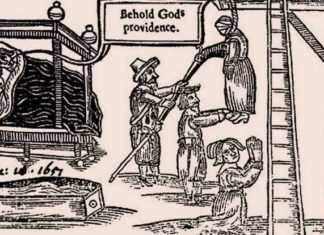
I think you know the English word “famous”. If someone is famous, it means that everyone has heard of them, that they are well-known. So, Beethoven was a famous composer, and the Eifel Tower is a famous landmark in Paris. But, suppose that someone is well-known for bad things and not for good things. Can we still say that they are “famous”? There are two words which we can use to describe someone or something which is famous for bad things – “infamous” and “notorious”. So, we would probably not say that Hitler for example was “famous”, we would say that he was “notorious”.
This is a long way of introducing today’s podcast, which is about the most famous – or perhaps the most notorious – crime in Britain in the last 100 years. It happened 45 years ago, in August 1963. In those days our Post Office used to send mail from one part of the country to another in special mail trains called Travelling Post Offices. During the journey, the Post Office staff sorted the mail so that it was ready to be delivered the next morning. Some of the mail was valuable. For example, the banks used the mail trains to send banknotes around the country.
In the summer of 1963, a group of criminals planned an attack on one of the Travelling Post Offices. They interfered with the railway signals in order to stop the train. Then they uncoupled the railway carriage which contained the banknotes, and used the railway engine to take it to a place where the railway crossed a bridge over a road. They threw 120 packages of banknotes over the bridge to other gang members, who loaded them into Land Rovers. The gang escaped with over £2.5 million pounds in used banknotes. This is equivalent to over £40 million today. It was at the time the biggest ever robbery in Britain.
A few days later, the police found the gang’s hideout, in an isolated farmhouse. And in the weeks after that, the police found and arrested 13 of the 15 gang members. They were tried, and sentenced to long periods in prison. However, most of the stolen money has never been found.
The story did not end there. Two of the gang members escaped from prison. Charlie Wilson fled to Canada. He was eventually brought back to England and to prison. Ronnie Biggs fled first to France, then to Australia, and then to Brazil. The British police found where he was, but they could not persuade the Brazilian courts to send him back to England. So Ronnie Biggs lived in Brazil for more than 30 years. He had a home and a family and friends there. But in 2001, when he was 71 years old, he returned to England. He said that he wanted to “walk into a pub as an Englishman and buy a pint of bitter“. In other words, he was home-sick. I do not know if he was ever able to buy his pint of bitter in a pub, because he was arrested and sent back to prison, where he still is.
The story of the Great Train Robbery has fascinated the British public over the years. Our newspapers reported every detail of the robbery, the capture of the gang, their trial, the escapes from prison and Ronnie Biggs’ return to England. Only a few weeks ago there were reports that Biggs, who is now old and ill, would shortly be released from prison. Why are we so interested in the Great Train Robbery? Some people sympathise with the robbers. They think that the Great Train Robbery was a clever, daring plan, and that the robbers were unlucky to be caught. Ronnie Biggs is the most famous (or the most notorious) of the train robbers, and many people therefore think that he was the mastermind behind the plan.
The truth is more complicated, however. The robbery was not particularly clever. Ronnie Biggs was not the leader – in fact he played only a small part. The gang was too large – 15 people in all – which increased the chances that one of them would do something stupid. They had planned to drive the train themselves to the bridge where they unloaded the banknotes.
But after they had stopped the train, they realised that they did not know how to drive the engine, so they made the real train driver drive it for them. And they left their fingerprints all over the train, and the farmhouse where they went after the robbery. So, was the Great Train Robbery Britain’s most famous crime? Or the most notorious crime? What do you think?
Landmark [ˈlændmɑːk] ориентир, достопримечательность.
Notorious [nəʊˈtɔːrɪəs] пресловутый, печально известный, отъявленный, пользующийся дурной славой.
In order to + inf. — чтобы.
Hideout [ˈhaɪdaʊt] укрытие, убежище, логово, прибежище.
Eventually [ɪˈvenʧʊ(ə)lɪ] в итоге, в конечном счете, в конце концов, наконец.
Home-sick [həʊm-sɪk] тоскующий по дому, по родине.
Fascinate [ˈfæsɪneɪt] очаровывать, восхищать, пленять, увлечь.
Daring [ˈdeərɪŋ] отважный, смелый, дерзкий.
Mastermind [ˈmɑːstəmaɪnd] вдохновитель, выдающийся ум.
Complicated [ˈkɒmplɪkeɪtɪd] сложный.
Больше информации вы можете получить на моем телеграм канале t.me/english_teacher_moscow
Больше адаптированных аудиокниг вы можете найти в моей VK группе https://m.vk.com/public26206217
Больше афоризмов и пословиц вы можете найти в моем Инстаграм профиле






























